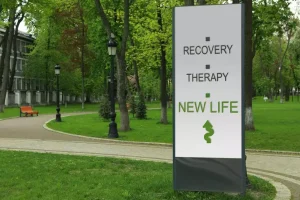Currently Empty: 0.00zł
Step 9 AA: When to Make Amends and When Not to FHE Health

Through mutual support groups like Alcoholics Anonymous, members learn and practice these spiritual steps and principles, with a view to staying sober and helping others do the same. Making amends involves acknowledging and correcting past behaviors. It’s a transformational part of addiction recovery that takes courage, self-awareness, and a willingness to change. On the surface, making amends might sound as simple as offering a sincere apology for your treatment of others, but there’s more to this cornerstone Twelve Step practice. To fix broken relationships, you have to put a lot of effort into making things work.

Direct Amends
In his book he shares the situation of a woman who has a fight with her brother. Though he calls her following the argument, she doesn’t answer. Though we would certainly suggest she read some of our other posts on seems like regret and self-forgiveness, we also deeply appreciate the option of a ‘living amends’.
How Soon Do I Start to Make Amends Once I Am Sober?
Some might be too tested by prior behaviors and actions that they simply need space. Or the people you need to apologize and make amends to are no longer living. If you or someone you love is struggling with active addiction or substance abuse, our specialists are available around the clock to assist you.
The List Of Wrongs
We’ll also include a Step 9 amends letter for anyone who wants to implement this step but isn’t sure how to. Just go to the person and say, “I’m sorry.” But hasn’t everyone had the experience of having that inadequate apology thrown our way? Usually, it isn’t really satisfying, nor does it take away the concern that the person is simply trying to get you to leave them alone or forget about what just happened. And yet every spiritual and religious tradition includes the importance of apology, forgiveness, and making amends. In Judaism, one of the year’s holiest days is the day of atonement.
Recovery Coaching
We understand that fact and don’t choose to run from it, and we understand that words cannot make those painful memories disappear. We can only become who we intend to be, and acknowledge to others that those addictive behaviors have no place in our lives from here on out. Before approaching Step 9, you need to complete the inventory in Step 8. This is a list of all of the people in your life whom you believe you have harmed. It can be a challenging list to write, even for those who want to embrace forgiveness and inner peace—but the list is important.
Navigating Step Nine: Living Amends
- If you’re untrustworthy and unreliable, come to terms with those characteristics of yours.
- The problem is there, and that person is in front of you right now.
- Through our various sober living programs and services, our members gain the tools to reflect on their past and communicate more effectively.
In that act, your actions in their memory make you and the world a better place. Remember, this is a Twelve Step process that can provide a platform for healing, but the person we are reaching out to may not be at the same place in healing as we are. We are only in control of our part—making and living the amends. As with alcohol and other drugs, we are also powerless over other people. We cannot control how others respond, whether they will forgive or whether they will hold on to negative feelings or resentments. In addiction, our actions and intentions aren’t aligned.

To learn from our experiences, we want to look at those patterns in detail. The last step is looking at how you can move out of that pattern. Integrating the power of nature and evidence-based care to treat addiction and co-occurring disorders with detox, residential, and outpatient care. Turns out, I was a bossy control freak who was terrified of everything. I had all the answers, and I shared them with everyone. When they didn’t follow my advice, I let them know – repeatedly.

Completing Step 9 is the next step forward in recovery, regardless of how the other person responds. Some of these same things can happen to the other person in the process. They may find resolution and understanding about the past. living amends Or, they may gain greater insights about addiction and commit to being a more supportive person in your recovery. Say, for example, you’re preparing to make amends to a former coworker, whom you once stole from to pay for drugs.
Connect with 12-Step treatment programs to start planning your recovery. Making amends helps repair relationship problems caused by addiction. While the process may seem daunting at first, you can make amends in a way that’s sincere and respectful. This can be a powerful way to move your healing journey forward. I don’t call him to see how his meeting went this week or what step he’s on. Nor do I play the peacemaker between him and our Mother.

